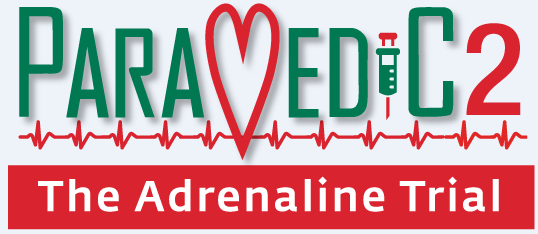Support For The Trial
The need for a trial to answer if adrenaline is helpful or harmful is supported by some of the leading organisations involved in cardiac care and resuscitation.
“It is important to remember that whilst adrenaline is routinely used to treat a cardiac arrest, we don’t actually know whether this is a safe and effective practice. The concern is it could be doing patients more harm than good. The only way to answer this crucially important question is to do a well-designed clinical trial.
Only by undertaking difficult studies of this kind can we be sure that patients are receiving the highest possible standard of care and have the best chance of a good outcome.”
Professor Peter Weissberg, Medical Director, British Heart Foundation
“This trial seeks to answer an extremely important and outstanding question of fundamental significance to both resuscitation science and contemporary paramedic practice.
The College of Paramedics, therefore, remains fully supportive of the trial objectives and of all those involved, which will include many College members who are taking part, and wishes the trial every success.”
Professor Andy Newton, Chair, College of Paramedics
“The current Resuscitation Council (UK) Guidelines and the UK Ambulance Services Clinical Practice Guidelines include the recommendations that adrenaline is given routinely every 3-5 minutes during the management of cardiac arrest. The long-term safety and effectiveness of this recommendation is unknown.
The Resuscitation Council (UK) supports the need for a randomised, controlled trial of adrenaline versus placebo in adults sustaining out-of-hospital cardiac arrest. In the context of such a trial, comparing adrenaline with placebo is considered ethically justified.”
Statement from Resuscitation Council UK
The International Liaison Committee for Resuscitation (ILCOR) also supports the need for a clinical trial, along with the College of Emergency Medicine and the Health & Care Professions Council.
The trial has been extensively reviewed and given funding from the National Institute for Health Research's Health Technology Assessment Programme. It has also been reviewed and approved by the South Central Oxford C Research Ethics Committee.
The views and opinions expressed therein are those of the authors and do not necessarily reflect those of the Health Technology Assessment Programme, NIHR, NHS or the Department of Health.



